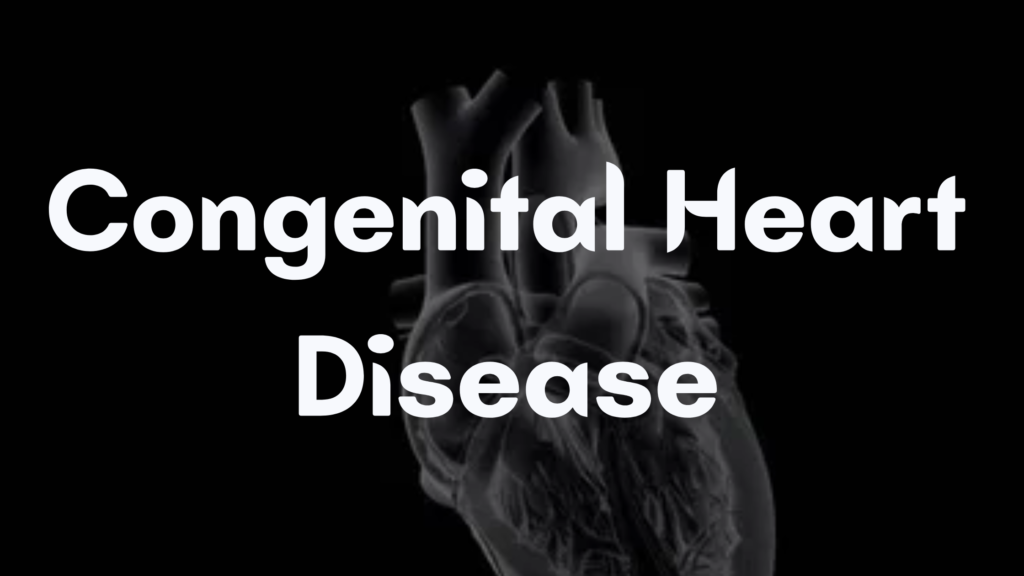🩺 Congenital Heart Disease (CHD)
Congenital Heart Disease refers to structural abnormalities of the heart or great vessels that are present at birth. These can affect how blood flows through the heart and to the rest of the body.
🧬 Causes:
- Genetic factors (e.g., Down syndrome, Turner syndrome)
- Environmental factors during pregnancy:
- Maternal infections (e.g., rubella)
- Diabetes
- Drug/alcohol use
- Certain medications
- Often, the cause is unknown
🧩 Types of CHD (Common Examples):
- Atrial Septal Defect (ASD): Hole between the heart’s upper chambers
- Ventricular Septal Defect (VSD): Hole between the lower chambers
- Tetralogy of Fallot: Combination of 4 heart defects
- Patent Ductus Arteriosus (PDA): Persistence of a fetal blood vessel after birth
- Transposition of the Great Arteries (TGA): Major arteries are reversed
- Coarctation of the Aorta: Narrowing of the main artery
🩺 Symptoms:
- Mild defects: May be asymptomatic
- Severe defects:
- Cyanosis (bluish skin/lips)
- Rapid breathing or difficulty feeding
- Poor weight gain in infants
- Fatigue, especially during exertion
- Heart murmurs
🔍 Diagnosis:
- Prenatal ultrasound (fetal echocardiogram)
- Newborn screening (pulse oximetry)
- Echocardiography (main tool)
- ECG, chest X-ray, or MRI
- Cardiac catheterization (for detailed assessment)
💊 Treatment:
- Mild defects may resolve on their own or require only monitoring
- Moderate to severe defects may require:
- Medications (e.g., to control symptoms or prevent heart failure)
- Catheter-based procedures
- Open-heart surgery to repair or correct structural problems
- Lifelong cardiology follow-up for complex cases
⚠️ Complications:
- Heart failure
- Pulmonary hypertension
- Arrhythmias
- Stroke
- Infective endocarditis (heart infection)
